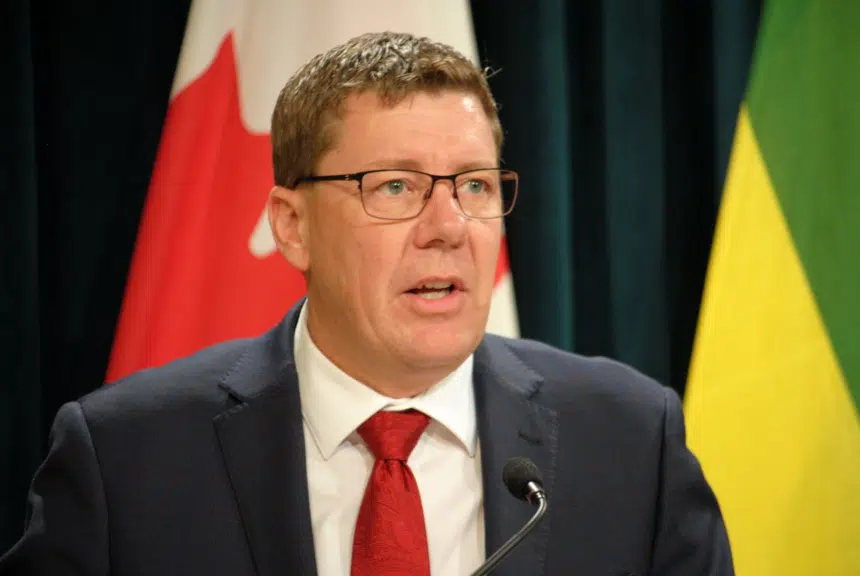Saskatchewan will do whatever it can to help Ukrainian refugees when they come to Canada.
Premier Scott Moe made that promise Thursday during a conference call with reporters.
During his trade mission to Europe, Moe visited a shelter in Germany for those who have fled the war in Ukraine.
“This is mothers, grandmothers and kids under 15 for the most part,” Moe said from Kassel, Germany.
“They’re very, very grateful — grateful for the generosity of Polish people, of German people, the people of Kassel, and very grateful to Canadians for what Canadians are doing to support Ukrainian families or Ukrainian people who are in Ukraine or are finding their way out to other parts of Europe.
“I heard a number of times that this is going to be a long war because the Ukrainian people quite simply are not going to give up their home.”
Moe’s government has vowed to take as many immigrants from Ukraine as possible, saying the province’s large population of people with Ukrainian roots makes Saskatchewan a logical home for people looking to find a home in Canada.
Moe doesn’t yet know how many immigrants the province will be taking in or for how long, but that’s not a concern for him.
“Two weeks, two months, six months or for the rest of their life, I think it’s incumbent on us to support it all,” Moe said.
For that reason, the provincial government will do whatever it can to help the federal government speed up the immigration process.
“We’ve offered resources and will be working closely with (federal Immigration) Minister (Sean) Fraser and his department in the very, very near future on, ‘Can Saskatchewan really be of some assistance in supporting the federal efforts?’ ’’ Moe said.
As for putting up those who travel to Saskatchewan from Ukraine, Moe said the province has “a significant amount of housing” available through the Saskatchewan Housing Authority.
“Hotels have been volunteered,” he added. “I’ve had folks in the construction industry with substantial-sized work camps that are available for some transitionary housing for a short period of time.
“In the summer months, we’ve used our university dormitories for two to three months when we have to evacuate folks out of our northern communities in the event of a forest fire.”
Moe is to head back to Saskatchewan on Friday after wrapping up the trip.
He said he and his team made progress pitching Saskatchewan products to a variety of government officials and finance representatives in both the United Kingdom and Germany.
He said what many European countries are looking for is a trusted and stable supply of potash, uranium and agri-food products.
“Canada and Saskatchewan rank very high — as high as anywhere in the world (and) certainly higher in the case of potash, uranium or agri-food products than a nation like Russia at this point in time,” Moe said.
He suggested that importers should look at how a product like potash is produced and its environmental sustainability.
“Most certainly when you look at the impact on the soil, water and ultimately the climate of Saskatchewan potash relative to that that is produced in Russia or Belarus, it ranks far, far higher on the sustainability,” he said.
— With files from 650 CKOM’s Lara Fominoff











